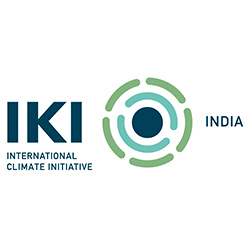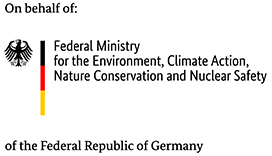Projects

Conservation of Seagrass Ecosystems- Safeguarding Food Security and Resilience in Vulnerable Coastal Communities On-going
Project Lead: Yasmeen TelwalaSeagrass is an essential food source for dugongs and other marine wildlife and provides key ecosystem services (e.g. fisheries productivity and carbon sequestration). Seagrass ecosystems are declining...
Read More →

Decarbonising Transport in Emerging Economies Completed
Transportation accounts for a significant share of greenhouse gas emissions in emerging economies. Reducing these emissions will significantly contribute to reaching the Nationally Determined Contribu...
Read More →

EcoLogistics: Low Carbon Freight for Sustainable Cities Completed
Project Lead: Sunandan TiwariUrban transport of goods and commodities is a significant source of greenhouse gases in Argentina, Colombia, and India. However, many cities do not adequately address this issue in their mitigation me...
Read More →

Enabling and Scaling up Market Adoption of Nature-Related Financial Disclosures On-going
According to the World Economic Forum, approximately $44 trillion of global economic output, representing around half of the global economy, is at moderate or significant exposure to nature-related ri...
Read More →

Ensuring the Transparency of Subnational Climate Change Mitigation Measures in Developing and Emerging Countries Completed
Project Lead: Sunandan TiwariMRV for transparency is a crucial foundation for policy-making within the framework of the Paris Agreement, extending to subnational levels. The first phase of the project supported state governments ...
Read More →

From NDCs to Pathways and Policies: Transformative Climate Action After Paris Completed
Project Lead: Marta Torres GunfausThe Parties to the Paris Agreement are committed to submitting more ambitious Nationally Determined Contributions (NDCs) every five years from 2020 onwards to limit global warming to as little as 1.5�...
Read More →

Gender into Urban Climate Change Initiative (GUCCI) Completed
Project Lead: Gotelind AlberEffective climate policy requires gender mainstreaming and increased participation of women in planning and implementing climate protection strategies. The project involved cooperation with experience...
Read More →

Global Climate Partnership Fund On-going
To limit global heating and mitigate the impacts of climate change, investments in energy efficiency, renewables, and measures that reduce greenhouse gas emissions are essential. The Global Climate Pa...
Read More →

Global PPP Programme II Completed
Project Lead: Yvonne VethPrivate investment and climate-friendly technologies are crucial for building a climate-friendly economy in emerging and developing countries. Therefore, the Climate Partnership Programme mobilised th...
Read More →

Green Banking - Capacity Building for Green Energy and Climate Finance On-going
In developing and emerging countries, financial resources for expanding sources of renewable energy and for energy efficiency measures are often lacking, since banks and investors lack expertise in su...
Read More →
Copyright © 2026 All rights reserved




